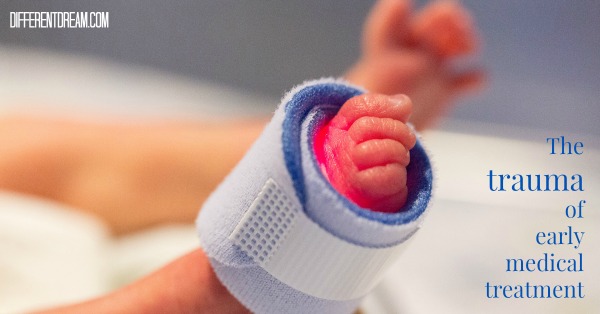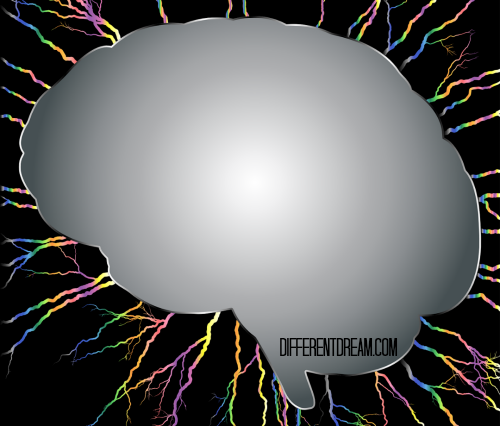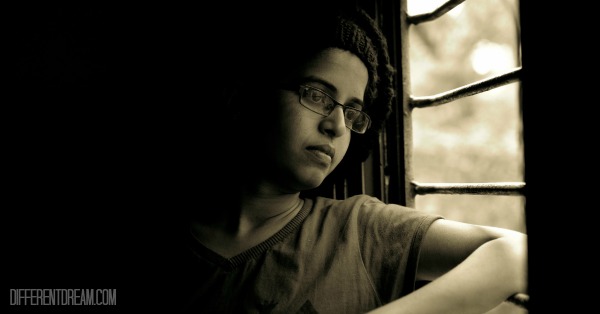Medical Treatment or Child Abuse?

“Do you suppose these medical tests and surgeries seem more like physical abuse to our baby?” My husband and I asked the doctors and nurses caring for our son that question over and over.
Time after time, they poo-pooed our concern and gave their stock answer, “He won’t remember a thing.”
Early Medical Treatment Kids with Special Needs
Donna Thomson asked the same question in a blog post at The Caregivers’ Living Room. She says this about one of the surgeries her son endured as a child:
When Nick was small, he had a surgical procedure to correct gastroesophageal reflux disease, or GERD. The procedure was called an ‘open full-wrap fundoplication’. Sometimes words like water-boarding or enhanced interrogation techniques do not sound so bad if you haven’t witnessed them first-hand. The same goes for an open fundoplication.
Those words resonated with me since our son had a fundoplication when he was four years old. He remembers going into the operating room and waking up after surgery well as one of the scariest events of his life. But we didn’t know that until years later. (Thomson’s complete post can be viewed at Am I an Abuser?)
Early Medical Treatment and PTSD
It turned out that we were right, and the doctors and nurses were wrong. Our son remembered not only the surgery when he was four, but also six other surgeries. The first surgery, and the most horrific because the doctors put no pain medication in his anesthesia, occurred before he was a day old. His reaction to those medical procedures was the same as that of children who are abused. He was traumatized and developed post-traumatic stress disorder (PTSD).
Children with PTSD Can Be Helped
That’s the bad news. But the good news is that treatment for children with PTSD is available and effective. Our son was treated at age 26, and it changed his life. If you think your child may have post-traumatic stress disorder, start searching for a mental health counselor with training. Or visit www.traumatherapy.us to learn more about the treatment our son received.
What Do You Think?
Are you worried that your child could have PTSD caused by medical treatment? To read more about it, type “PTSD” in the search box at the top of the page to find other articles on the subject at this blog and elsewhere. If you have questions or success stories, leave a comment!
Do you like what you see at DifferentDream.com? You can receive more great content by subscribing to the quarterly Different Dream newsletter and signing up for the daily RSS feed delivered to your email inbox. You can sign up for the first in the pop-up box and the second at the bottom of this page.
By Jolene
Jolene Philo is the author of several books for the caregiving community. She speaks at parenting and special needs conferences around the country. Sharing Love Abundantly With Special Needs Families: The 5 Love Languages® for Parents Raising Children with Disabilities, which she co-authored with Dr. Gary Chapman, was released in August of 2019 and is available at local bookstores, their bookstore website, and Amazon. See Jane Sing!, the second book in the West River cozy mystery series, which features characters affected by disability, was released in November of 2022.
2 Comments
Submit a Comment
Subscribe for Updates from Jolene
Related Posts
Inside Out Special Needs Parenting, Part 2: Brain Basics
This post in the Inside Out Special Needs Parenting series takes a look at brain basics to explain why kids can push our buttons.
Special Needs Parenting Stress and Medication
Sometimes will power alone can’t cure special needs parenting stress. Guest blogger Sheri Dacon explains when she realized medication had to be part of her healing.
Myths about PTSD in Children, Part 1
5 myths about PTSD in children is explained in the third episode of Jolene Philo’s video series for Rising Above Ministries and Jolene Philo.






Dear Jennifer,
Your son is dealing with a great deal, and so are you as his parents. It’s my desire to let others know that kids can have PTSD, and that they can be successfully treated for it, too. I hope your son is able to get the treatment he needs.
Best wished and prayers to you,
Jolene
I loved reading this- this is my son’s story. And his medical trauma’s started at age 2 for him- his first colonoscopy, endoscopy and bowel disimpaction… and the versed doesn’t work for him.. but of course we only find this out later when he asks me why did I leave him? We’ve learned so much about my son since then, like many meds are not effective for him at the dose they should be …. my son now has a cecostomy button in his colon due to a bowel that doesn’t function- his surgery was a 10 day horrible hospital stay full of x rays, barium enema’s, and ultimately the cecostomy. He was 4 1/2. He is now 8 1/2 and he as Dx with PTSD at age 5… and unfortunately at least 2x a year he still has to go to the hospital for bowel disimpaction- which is literally paralyzing to him, and every night since he was 4 1/2 and received his cecostomy button he has to sit on the potty for 45min for us to flush his bowels…. which we are told always a reminder of his trauma in the hospital therefore constantly triggering his PTSD- so every night he is triggered. He was later Dx with autism and Sensory Processing Disorder…. so in our story- PTSD is a chapter in my son who behaviorally is so challenging, and PTSD plays a huge role in this behavior- along with his Autism, SPD. Thanks for bringing attention to this very critical subject- because all we heard as he was going through all these very invasive procedures and hospitalizations was- kids are resilient! Which I replied, that may be, but you don’t know my son- and how he responds to these situations is real and not because of bad parenting, as has been suggested. I feel so strongly about how children are treated in a hospital setting- expected to behave, be respectful, and cooperate. These kids are scared, understand way more then they are given credit for, and yes some of them are resilient, but some will literally be traumatized and we need to help them even more. Thanks again for bringing up this subject that is also near and dear to our family.
Sincerely,
Jennifer